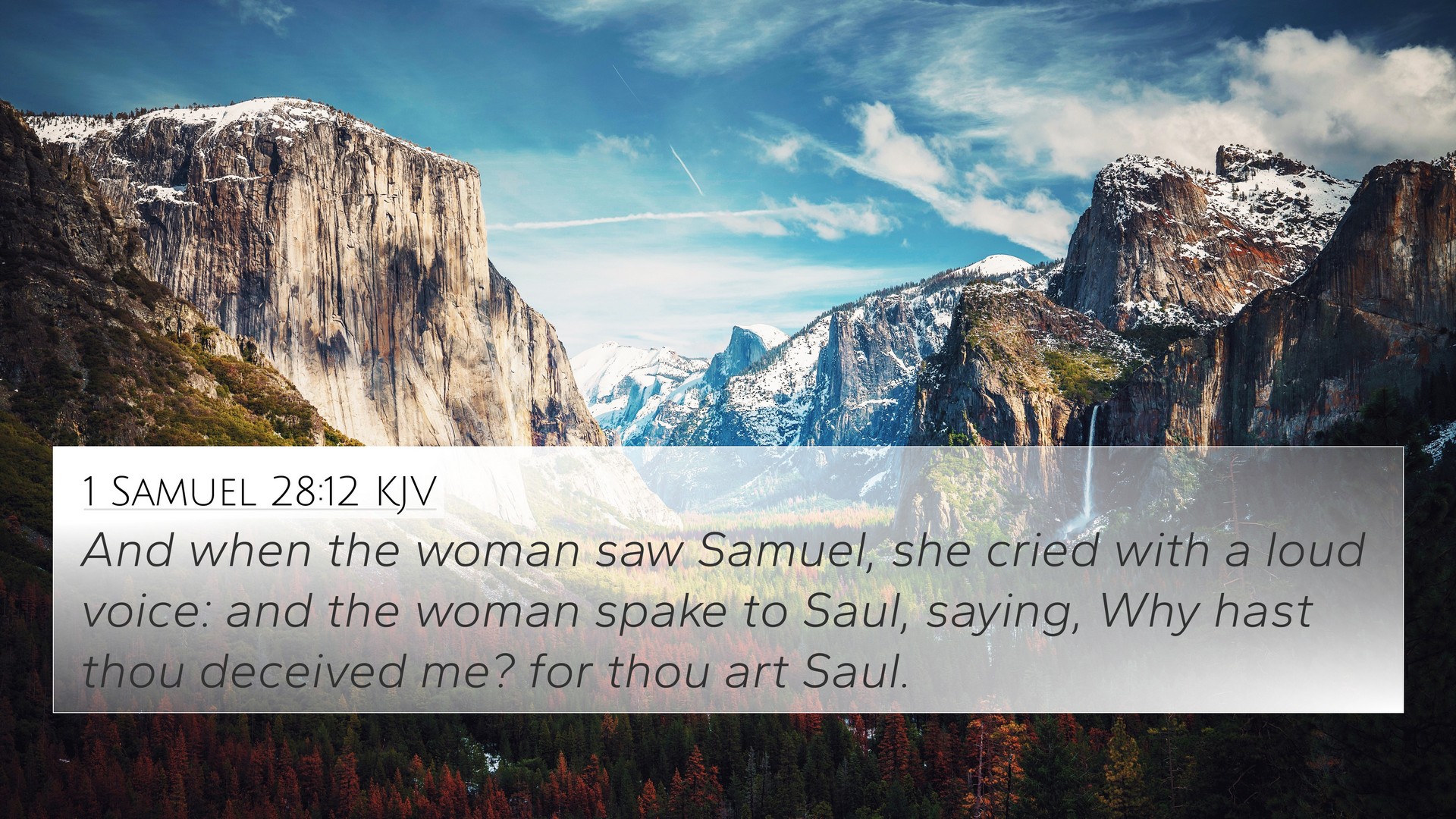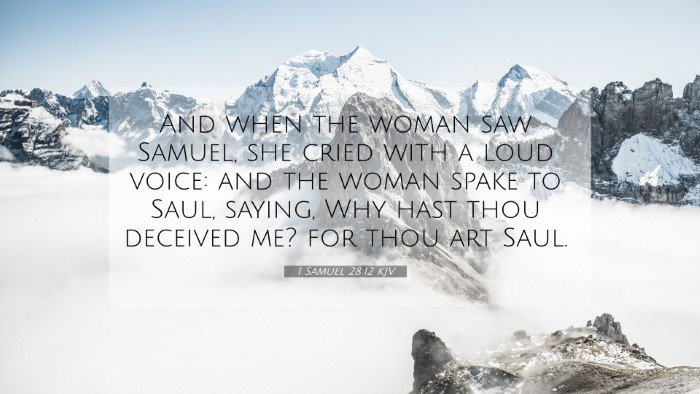Understanding 1 Samuel 28:12
The verse 1 Samuel 28:12 states:
"And when the woman saw Samuel, she cried with a loud voice: and the woman spake to Saul, saying, Why hast thou deceived me? for thou art Saul."
Context and Overview
This verse takes place during a pivotal moment in the story of King Saul. In desperation, Saul consults a medium to speak with the deceased prophet Samuel.
Commentary Insights
Matthew Henry’s Commentary
Henry interprets this encounter as a crucial point that reveals Saul's spiritual decline and the tragic consequences of his disobedience to God. He highlights the woman's fear and amazement at the unexpected appearance of Samuel, indicative of the supernatural elements at play.
Albert Barnes’ Notes
Barnes emphasizes the utter shock of the medium when she recognizes Samuel. He discusses the implications of Saul's choice to seek counsel from a necromancer, showcasing the depths of his despair and separation from God's guidance, which ultimately leads to ruin.
Adam Clarke’s Commentary
Clarke elaborates on the reaction of the medium, noting that she was not only frightened but also instantly aware of Saul’s identity as the king, which profoundly illustrates her apprehension about a king consulting her for guidance.
Thematic Connections
The following themes can be derived from 1 Samuel 28:12:
- The consequences of turning away from God: Saul's actions reflect his disconnection from divine instruction.
- The role of mediums and necromancy in Biblical context: This encounter serves to illustrate the dangers of seeking spiritual guidance from prohibited sources.
- Fear and recognition: The medium’s reaction emphasizes the fear that real spiritual encounters can evoke.
Cross-References
This verse connects with various other scripture passages that elucidate similar themes and concepts:
- Deuteronomy 18:10-12: A prohibition against consulting mediums and necromancers.
- 1 Chronicles 10:13-14: Describes Saul's demise and God's rejection of him.
- Isaiah 8:19: Encouragement against consulting the dead for guidance.
- 1 Samuel 15:23: Outlines the reasons for Saul's rejection, focusing on his disobedience.
- 1 Samuel 16:14: The spirit of the Lord departing from Saul, leading him to desperation.
- Matthew 5:22: The dangers of anger and despising one's brethren, mirroring Saul’s troubled state.
- Luke 16:27-31: References conversations between the living and the dead, reflecting the supernatural communication questioned here.
Conclusion
1 Samuel 28:12 serves as a stark reminder of the spiritual decay that can occur when one turns away from God. The fear and confusion exhibited by the medium highlight the weight of divine encounters and the perils of seeking forbidden knowledge. Through comparative Bible verse analysis, we see that this story resonates with multiple passages throughout scripture, offering insights into God’s views on consultation with the dead and the unfolding consequences of Saul's choices.
Using Cross-References for Deeper Understanding
In studying passages like 1 Samuel 28:12, it is beneficial to employ a Bible concordance or a Bible cross-reference guide to explore how various verses correlate with one another. This approach helps in:
- Uncovering the thematic Bible verse connections across both the Old and New Testaments.
- Identifying the moral and spiritual lessons that emerge when similar stories or teachings are compared.
- Encouraging a more profound study of scripture that links prophetic writings with practical applications in one’s faith journey.
As you delve deeper into scripture, consider the narrative relationships and thematic parallels that 1 Samuel 28:12 provides. Such connections not only enrich your understanding but also empower your spiritual growth through comprehensive Bible cross-reference materials.




